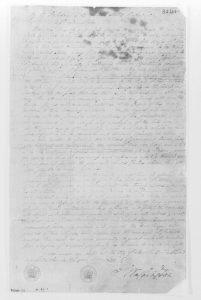Reflections ministry associate Michael Stewart continues a sermon series on prayer at GraceLife Church of Pineville, inspired by Ken Boa’s Handbook to Prayer. Some summary notes on the sermon’s introduction are found below.
Reason for Celebration
Thanksgiving marks the beginning of our American holiday season. Conversation among Christians during the holidays often turns to the question of why (and perhaps even whether) we should celebrate. Some are able to enthusiastically embrace the Christian core of the season along with its cultural tinsel, while others hold a guarded stance against less-than-religious merrymaking.
Can we celebrate with Christian conviction mixed with cultural sentiment?
In the case of Thanksgiving, there’s biblical reason for recognizing both identities. The Scriptures remind us of (1) a universal call for all mankind to give thanks and (2) a universal blessing upon nations that demands recognition.
A Universal, Individual Revelation
Consider Paul’s example of those who failed to respond properly to God’s revelation:
Romans 1:20–21b: For since the creation of the world His invisible attributes, His eternal power and divine nature, have been clearly seen, being understood through what has been made, so that they are without excuse. For even though they knew God, they did not honor Him as God or give thanks.
When God’s eternality, power, and divinity are understood, the proper response is twofold: honor and thanks. There is both a public and private nature to this response—a declaration to others of who God is and a private acknowledgment in our own hearts.
A Universal, National Blessing
The failure to acknowledge God by individuals may result in the failure of nations as a whole to give God His proper thanks.
Acts 14:16–17: In the generations gone by He permitted all the nations to go their own ways; and yet He did not leave Himself without witness, in that He did good and gave you rains from heaven and fruitful seasons, satisfying your hearts with food and gladness.
A call to honor God and give thanks for His blessings upon the nation—specifically, fruitful seasons—is the essence of Thanksgiving. The nation that does so aligns itself with a biblical calling.
America’s Thanksgiving
The national proclamation of Thanksgiving by the first president reminded Americans of the “duty of all Nations to acknowledge the providence of Almighty God, to obey his will, to be grateful for his benefits, and humbly to implore his protection and favor.” George Washington recommended “a day of public thanksgiving and prayer . . . acknowledging with grateful hearts the many signal favors of Almighty God.”
Like Washington, Abraham Lincoln issued a national proclamation containing Scriptural allusions. He acknowledged a year “filled with the blessings of fruitful fields and healthful skies,” noting that with the frequency of “these bounties” we are “prone to forget the source from which they come.”
Insofar as our national observances and individual dispositions line up with the commands of Scripture, we can and should celebrate.
The Apostle Paul and the Habit of Thanksgiving
Proclamations of thanksgiving are, of course, not uniquely American. Long before Washington or Lincoln, the Apostle Paul’s writings expressed thanks to people groups spread across Roman lands.
Beginning with Thanks
A survey of Paul’s letters reveals his giving of thanks, early and often.
- Romans: “I thank my God through Jesus Christ.”
- 1 Corinthians: “I thank my God always.”
- Ephesians: “I do not cease giving thanks.”
- Philippians: “I thank my God in all my remembrance.”
- Colossians: “We give thanks to God, the father of our Lord Jesus Christ.”
- 1 Thessalonians: “We give thanks to God always.”
- 2 Thessalonians: “We ought always to give thanks to God.”
- 2 Timothy: “I thank God, whom I serve.”
- Philemon: “I thank my God always.”
Beyond Thanksgiving
Paul didn’t stop with thanksgiving. His ongoing gratitude was the catalyst for further prayers. While thankful for the introduction of others to the gospel of Christ, he didn’t settle for a mere introduction to the faith. Instead, he prayed for their flourishing—for an increase and filling that comes only from knowing God and walking worthily in His calling.
Consider his prayer from Colossians 1:9–12:
For this reason also, since the day we heard of it, we have not ceased to pray for you and to ask that you may be filled with the knowledge of His will in all spiritual wisdom and understanding, so that you will walk in a manner worthy of the Lord, to please Him in all respects, bearing fruit in every good work and increasing in the knowledge of God; strengthened with all power, according to His glorious might, for the attaining of all steadfastness and patience; joyously giving thanks to the Father, who has qualified us to share in the inheritance of the saints in Light.
Thanksgiving and the Saints
Exploring Paul’s themes of thanksgiving and growth in Colossians can teach us much about spiritual blessing and our calling to become who we are in Christ. For more on this subject, and an exposition of how the structure of Colossians reveals how we as individuals can live a life of thanksgiving to God the Father, I invite you to watch this sermon, “Thanksgiving Prayer.”
Happy Thanksgiving.
All Scripture quotations are NASB.



